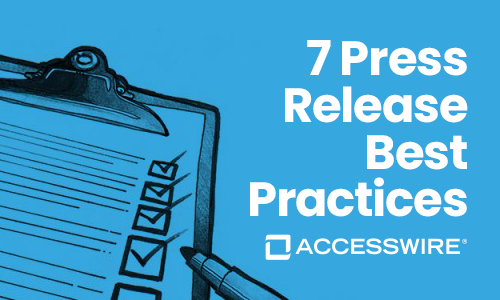Backlinks 101: The Do's and Don'ts of Building Backlinks
SEO.
Three letters that hold a lot of weight in the digital space.
SEO, short for search engine optimization, is at the top (or should be) of every brand’s mind. That's because SEO helps companies earn their PageRank and have a higher ranking in searches for specific keywords and phrases.
Search engines are the judge and how people interact with your copy is the jury.
So, how can you build a strong case that your content is worth your target audience’s time?
One way of doing so is by building backlinks.
And, in this blog post, we’ll cover everything you need to know including:
- What are backlinks?
- Why are backlinks important?
- Are there such thing as “good” backlinks?
- What’s the difference between white Hat SEO and Black Hat SEO?
- The do’s and don’ts of building backlinks
What are backlinks?
Think of the last blog post you read.
Did it include clickable links that directed you to an entirely different website?
Those links, sometimes referred to as “inbound links” are backlinks.
So, if your website links out to another website, you’ve created a backlink for the other website.
And, if another website links back to your website, they’ve created a backlink for you.
Why are backlinks important?
Backlinks are essentially a “vote of confidence.”
When a website (that’s relevant to your website’s topic... More on that later) shares a link back to your website, it’s a signal to search engines that your site’s worth linking to.
The more relevant backlinks you receive, the higher your website will show on the search engine results page (SERP).
Are there such thing as “good” backlinks?
The short answer to this question is yes, because there’s such thing as “bad” backlinks.
The difference between “good” and “bad” backlinks is the authority of the page linking back to your website.
Backlinks are weighted differently and links from pages with significant authority pass more authority to the website it’s linking to.
It’s worth noting that not all authoritative links are created equal.
Let’s say, for example, you own a law firm.
Your website received a link from an authoritative site about making sourdough bread.
Does that make for a good backlink?
Though the website is an authority in its own industry, its authority doesn't extend to your law firm since the two have no connection.
In addition to authority, Google also considers the relevancy and value of the link.
The more aligned a link is to your brand, the better.
What’s the difference between white Hat SEO and Black Hat SEO?
If you’re thinking to yourself, “I thought this blog was about backlinks, why are we talking about hats?”
Don’t click away.
When it comes to building backlinks there’s the right way to do it and the wrong way to do it (avoid these tactics at all costs!).
The right way or the ethical way is white hat SEO. These tactics stay within the search engines’ service agreement terms.
Black hat SEO defies those service agreements by trying to game the system and achieve higher rankings.
The loopholes and manipulative tactics of black hat SEO can lead to “quick wins,” but they also threaten a brand’s digital longevity as the search engines can penalize black hat activity by pushing a site farther down in the rankings, or worst case, delisting it altogether.
The do’s and don’ts of building backlinks
To be clear, the “do’s” we’re about to share are considered white hat SEO tactics and the “don’ts” are black hat SEO tactics.
DO...
Create valuable content
Before you roll your eyes because you’ve heard this advice more times than you can count, it’s true.
Earning links starts with good content.
Why would a company want to link back to your content?
Odds are they won’t link to your website if your blog or resource doesn’t help them explain a subject or help their audience in any way.
But, if your content answers a question. solves a problem, addresses a common pain point, websites will be more apt to link back to yours.
Place an emphasis on earned media
Earned media is the most powerful form of word-of-mouth marketing. That’s because you didn’t have to pay for the coverage. A journalist found your pitch so interesting; they shared it with their audience.
A tried-and-true catalyst of earned media is press release distribution.
Sharing a press release with targeted and relevant distribution channels helps connect your brand with the media who’s interested in what you have to say.
When a publication shares your story on their website, they’ll link back to yours (hello, authoritative backlinks!)
Ask for a backlink
Let’s say you’re Googling your brand name. As you comb through the results, you see a website mentioned your brand, but didn’t link to your website. This is a prime opportunity to earn a backlink.
Send an email to the website and first thank them for mentioning your brand.
Then, turn on your charm and ask them if they could link back to your website in the article.
DON’T...
Buy backlinks
They say the best things in life are free and this applies to backlinks. Never, under any circumstance, buy a backlink.
It’s a big “no-no” because if a search engine giant like Google finds out you’ve purchased backlinks, you might as well pack your bags because your stay on the first SERP is over.
Buying backlinks will tank your ranking and do the opposite of what you were trying to do in the first place which was improve them.
Secure links on irrelevant websites
We talked about it before but it’s worth mentioning again -- the relevancy of your backlinks matters.
Securing backlinks on irrelevant websites for the sake of securing backlinks will send a red flag to Google that something’s amiss.
Focus on relevancy and your authority will get the boost you’re looking for.
SPAM people
Leaving thoughtful comments on other people’s blogs is a white hat SEO tactic. But when you leave comments (and a lot of them) promoting your website on someone else’s content, you run the risk of devaluing your brand and your content.
Think about it.
Leaving comments that are focused on you and include links back to your website on other people’s content is like getting engaged at someone else’s wedding.
It's tone-deaf and will have people talking about your brand in a negative manner for quite some time. If you’d like to learn more about how press release distribution can help you build valuable backlinks for your brand, contact us today!
Similar Blog Posts
PRODUCTS
ACCESSWIRE | All Rights Reserved





